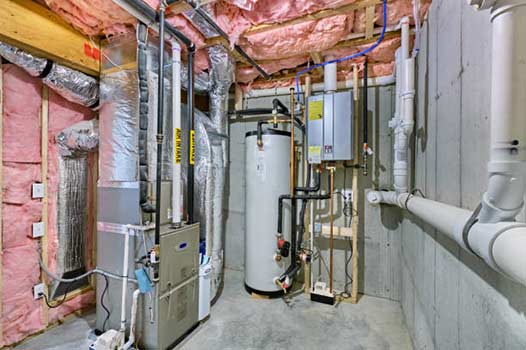
Below we will provide you with all the essential information you need to know about maintaining the plumbing system in your basement. Whether you are a homeowner or a property manager, it is crucial to understand the importance of regular maintenance to avoid costly repairs and potential water damage. By following the tips and guidelines outlined in this guide, you will be able to keep your basement plumbing in optimal condition.
Understanding Basement Plumbing
Before diving into the maintenance aspect, it is essential to have a basic understanding of the plumbing system in your basement. Typically, the basement houses various pipes, fixtures, and appliances that connect to the main plumbing system of your home. Some common components of basement plumbing include water supply lines, drainage pipes, sump pumps, water heaters, and sewage ejector systems. Familiarizing yourself with these elements will help you better comprehend the maintenance tasks required.
The Importance of Basement Plumbing Maintenance
Regular maintenance of your basement plumbing system is crucial for several reasons:
- Prevents leaks and water damage: By checking for and addressing any leaks or issues early on, you can prevent water damage to your basement walls, floors, and belongings.
- Extends the lifespan of plumbing components: Proper maintenance helps prolong the lifespan of pipes, fixtures, and appliances, saving you money on replacements.
- Prevents plumbing emergencies: Regular inspections and maintenance allow you to catch potential problems before they develop into costly emergencies.
- Preserves water quality: Maintaining your basement plumbing system ensures that the water flowing into your home remains clean and free from contaminants.
Tips for Basement Plumbing Maintenance
Now that you understand the importance of basement plumbing maintenance, let’s dive into some practical tips:
Regular Inspections
Schedule regular inspections of your basement plumbing system. Look for signs of leaks, corrosion, or any other damage. Inspect the water supply lines, drain pipes, sump pumps, and any visible joints or connections. If you notice any issues, it is best to address them promptly.
Test Sump Pump Functionality
If your basement has a sump pump, it is crucial to test its functionality regularly. Pour water into the sump pit to ensure that the pump activates and effectively removes the water. If the pump fails to operate correctly, you may need replace the sump pump altogether.
Clean and Maintain Drains
Regularly clean your basement drains to prevent clogs and backups. Use drain cleaners or natural solutions like baking soda and vinegar to keep the drains clear. Avoid disposing of grease, oils, or other non-biodegradable substances down the drains, as these can cause blockages.
Insulate Pipes
To protect your basement plumbing system from freezing during colder months, consider insulating exposed pipes. Insulation will help prevent pipe bursts and potential water damage. Pay extra attention to pipes located near exterior walls or in unheated areas of the basement.
Maintain Water Heater
If your water heater is located in the basement, regular maintenance is necessary to ensure its optimal performance. Flush the tank annually to remove sediment buildup and test the pressure relief valve to ensure it is functioning correctly. Consider professional water heater servicing every few years for deeper inspections.
Address Moisture and Humidity
Basements are prone to moisture and humidity, which can lead to mold growth and water damage. Install a dehumidifier to control humidity levels and address any moisture issues promptly. Ensure proper ventilation and consider sealing any cracks or gaps in the basement walls to prevent water seepage.
Knowledge of Shut-Off Valves
Make sure you know the location of the shut-off valves for your basement plumbing. In case of a plumbing emergency, being able to quickly shut off the water supply can help minimize damage. Label the valves accordingly for easy identification.
To Conclude
Proper maintenance of your basement plumbing system is essential for preserving the integrity of your home and avoiding costly repairs. By following the tips outlined in this comprehensive guide, you can ensure that your basement plumbing functions optimally for years to come. Remember to schedule regular inspections, address issues promptly, and seek professional help when needed. With proper maintenance, you can enjoy a well-functioning and reliable basement plumbing system.

